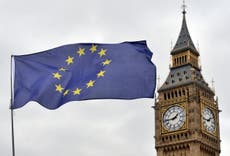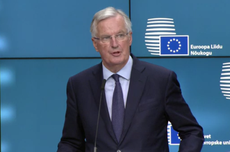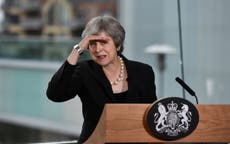Theresa May’s lack of preparedness for Brexit has been cruelly exposed
The Home Office is unable to say how many customs officers are currently deployed – let alone how many it will need when we leave the EU
It inspires little confidence in the government’s preparations for leaving the European Union that it has no idea, as The Independent reports today, how many customs officers it employs.
This is a problem on two timescales. In the short run, it could be that Britain urgently needs thousands of border staff in eight months’ time, at the end of March, if we leave the EU without a withdrawal agreement. If the Brexit talks break down completely, so that there is no transition period, this could cause congestion and delays at ports and airports.
No doubt the UK authorities would be content to wave through EU goods as they do now, with no tariffs, but if the EU side decide to impose customs checks it could mean long queues of lorries in Kent. As we reported last month, plans for new lorry parks in Kent would not be ready in time for a no-deal Brexit next year.
The Border Force, the part of the Home Office responsible for checks at ports and airports, is unlikely to be ready for a no-deal Brexit if it does not even know how many frontline customs staff it has now.
This rather undermines the new hardline negotiating stance adopted by Dominic Raab, the new Brexit secretary, who has urged his ministerial colleagues to step up planning for a no-deal Brexit in order to increase his leverage with Michel Barnier, the EU’s chief negotiator. Mr Raab wants to be able to threaten to walk away from the Brexit talks, but Mr Barnier knows perfectly well that we are not well placed to do so.
We need less of this aggressive posturing. Walking away without a deal will never be a good option for this country, however well prepared for it we were. Becoming a third country, forced to deal with the EU under minimum World Trade Organisation rules, would cost us 4 per cent of our national income over the long term, according to the International Monetary Fund this week.
The IMF report was significant in that it made clear how damaging a no-deal Brexit would be for the economies closest to us. Ireland would suffer almost as much as we would, while the Netherlands, Denmark, Belgium and the Czech Republic would all lose about 1 per cent of their national income.
Mr Raab might be better advised to work with our European partners to avoid such an outcome rather than threatening to cut off our (and Ireland’s) nose to spite our face.
However, our lack of preparedness for new customs arrangements is a problem on a longer timescale too. Theresa May’s Chequers plan for Brexit envisages a new customs system coming into effect at the end of the transition period on 1 January 2021. The prime minister was unable to explain to the Liaison Committee this week how this fiendishly complicated system by which we collect tariffs on behalf of the EU, and vice versa, would work.
It is scarcely credible that, two years after the referendum, such basic questions of our future trading relationship with the EU have only begun to be resolved. Unless Mr Raab can get a grip in just a few short months, the case for a simple customs union – which would abolish the need for customs checks between the UK and the EU – will only get stronger.






Join our commenting forum
Join thought-provoking conversations, follow other Independent readers and see their replies